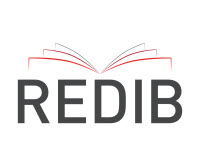IA para el bien común, IA para Datong
Resumen
El gobierno chino y las compañías tecnológicas asumen una postura proactiva hacia las tecnologías digitales y la inteligencia artificial (AI), y su papel en la vida de los usuarios y las personas en general. Esta visión de ‘Tech for Good’ (por ejemplo, el desarrollo de buenas tecnologías digitales y de AI, o su aplicación para cosas buenas), es compartida también por las mayores compañías tecnológicas del mundo (Google, Microsoft y Facebook). Sin embargo, estas iniciativas han recibido numerosas críticas por su viabilidad y conveniencia, en particular en relación con las condiciones sociales y políticas de las sociedades democráticas liberales. En este artículo se discute si las críticas también aplican al contexto chino y sostiene que la filosofía de Confucio proporciona los recursos normativos para responder a esas críticas. Este análisis de cruces culturales, permite formular, por lo tanto, un relato diferente de AI4SG, que aquí es denominada ‘AI for Datong’, y ayuda a re-imaginar la visión normativa para la AI.
Descargas
Citas
Ames, R., Rosemont, H. (1999). The Analects of Confucius: a Philosophical Translation. New York: Ballantine Books (trans.).
Beijing Academy of Artificial Intelligence [BAAI] (2019, May 28). Beijing AI Principles. Available at: https://www.baai.ac.cn/news/beijing-ai-principles-en.html
Berendt, B. (2019). AI for the Common Good?! Pitfalls, Challenges, and Ethics Pen-Testing. Paladyn, Journal of Behavioral Robotics, 10, 1, 44-65. https://doi.org/10.1515/pjbr-2019-0004
Berberich, N., Nishida, T., Suzuki, S. (2020). Harmonizing Artificial Intelligence for Social Good. Philosophy & Technology. Available at: https://doi.org/10.1007/s13347-020-00421-8
Chen, A. H. Y. (2014). The Concept of “ Datong ” in Chinese Philosophy as an Expression of the Idea of the Common Good. In: Solomon, D., Lo, P. C. (Eds.). The Common Good: Chinese and American Perspective. Dordrecht: Springer. p. 85-102.
Cheng, M. (2019, November 20). Tech for Good: The Second Half of a Large Social Experiment? Internet Frontiers. Available at: https://www.tisi.org/?page_id=7043&post_id=839
European Commission High-Level Expert Group on Artificial Intelligence [AI HLEG] (2019). Ethics Guidelines for Trustworthy AI. Available at: https://ec.europa.eu/digital-single-market/en/news/ethics-guidelines-trustworthy-ai
Floridi, L., Cowls, J., King, T. C., Taddeo, M. (2020). How to Design AI for Social Good: Seven Essential Factors. Science and Engineering Ethics, 26, 1771-1796.
Davidson, H. (2020, April 1). China's Coronavirus Health Code Apps Raise Concerns over Privacy. The Guardian. Available at: https://www.theguardian.com/world/2020/apr/01/chinas-coronavirus-health-code-apps-raise-concerns-over-privacy
Gasper, D. (2019) The Road to the Sustainable Development Goals: Building Global alliances and norms. Journal of Global Ethics, 15, 2, 118-137.
Green, B. (2019). “Good” isn’t Good Enough. Paper presented at AI for Social Good Workshop, NeurIPS 2019. Vancouver, Canada. Available at: https://www.benzevgreen.com/wp-content/uploads/2019/11/19-ai4sg.pdf
Grover, D. (2020, April 5). How Chinese Apps Handled Covid-19. Available at: http://dangrover.com/blog/2020/04/05/covid-in-ui.html
Laskai, L., Webster, G. (2019, June 17). Translation: Chinese Expert Group Offers ‘Governance Principles’ for ‘Responsible AI’. New America. Available at: https://www.newamerica.org/cybersecurity-initiative/digichina/blog/translation-chinese-expert-group-offers-governance-principles-responsible-ai/
Latonero, M. (2019, November 18). AI for Good is Often Bad. Wired. Available at: https://www.wired.com/story/opinion-ai-for-good-is-often-bad/
Legge, J. (1861). The Analects (trans.). Available at: https://ctext.org/analects
Legge, J. (1885). The Li Ki (trans.). Available at: https://ctext.org/liji
Lucero, K. (2019). Artificial Intelligence Regulation and China’s Future. Columbia Journal of Asian Law, 33, 1, 94-171.
Mansbridge, J. (1998). On the Contested Nature of the Public Good. In W. W. Powell and E. S. Clemens (Eds.). Private Action and the Public Good. New Haven: Yale University Press. p. 3-19.
Moore, J. (2019). AI for Not Bad. Frontiers in Big Data, 2, 32. Available at: https://doi.org/10.3389/fdata.2019.00032
Morozov, E. (2013). To Save Everything, Click Here: The Folly of Technological Solutionism. New York: PublicAffairs.
Mozur, P., Zhong, R., Krolik, A. (2020, March 1). In Coronavirus Fight, China Gives Citizens a Color Code, With Red Flags, New York Times. Available at: https://www.nytimes.com./2020/03/01/business/china-coronavirus-surveillance.html
Nesta (2020). The AI Powered State: China’s approach to public sector innovation. Available at: https://www.nesta.org.uk/documents/1860/Nesta_TheAIPoweredState_2020.pdf
Rawls, J. (1993). Political Liberalism. New York: Columbia University Press.
Rosenlee, L. L. (2017). Ritual, Dependency Care and Confucian Political Authority. International Communication of Chinese Culture, 4, 493-513.
Ryan, M., Antoniou, J., Brooks, L., Jiya, T., Macnish, K., Stahl, B. (2020). The Ethical Balance of Using Smart Information Systems for Promoting the United Nations’ Sustainable Development Goals. Sustainability, 12, 12, 4826. Available at: https://doi.org/10.3390/su12124826
Tao, J. P.-W. L. (2000). Two Perspectives of Care: Confucian Ren and Feminist Care. Journal of Chinese Philosophy, 27, 2, 215-240.
Tencent (2019, November 11). Value for Users, Tech for Good. Available at: https://www.tencent.com/en-us/articles/2200913.html
Tomašev, N., Cornebise, J., Hutter, F., Mohamed, S., Picciariello, A., Connelly, et. al (2020). AI for Social Good: Unlocking the Opportunity for Positive Impact. Nature Communications, 11, 1, 2468. Available at: https://doi.org/10.1038/s41467-020-15871-z
United Nations (n.d.). Sustainable development Goals—United Nations. Availabe at https://www.un.org/sustainabledevelopment/sustainable-development-goals/
Vinuesa, R., Azizpour, H., Leite, I., Balaam, M., Dignum, V., Domisch, S., Felländer, et. al. (2020). The Role of Artificial Intelligence in Achieving the Sustainable Development Goals. Nature Communications, 11, 1, 233. Available at: https://doi.org/10.1038/s41467-019-14108-y
Webster, G. (2019, June 17). Translation: Chinese AI Alliance Drafts Self-Discipline 'Joint Pledge'. New America. Available at: https://www.newamerica.org/cybersecurity-initiative/digichina/blog/translation-chinese-ai-alliance-drafts-self-discipline-joint-pledge/
Wong, P.-H. (2012). Dao, Harmony and Personhood: Towards a Confucian Ethics of Technology. Philosophy & Technology, 25, 67-86.
Wong, P.-H. (2019). Rituals and Machines: A Confucian Response to Technology-Driven Moral Deskilling. Philosophies, 4, 4, 59. Available at: https://doi.org/10.3390/philosophies4040059
Yu, K. P. (2010). The Confucian Conception of Harmony. In: Tao, J., Cheung, A., Painter, M., Li, C. (Eds.), Governance for Harmony in Asia and Beyond. London: Routledge. p. 15-36.
Zhu, Y. (2020, February 17). Making Good Use of Science and Technology to Solve the “Pandemic” Emergency. People’s Daily. Available at: http://opinion.people.com.cn/n1/2020/0217/c1003-31591258.html
Derechos de autor 2021 Pak-Hang Wong

Esta obra está bajo licencia internacional Creative Commons Reconocimiento 4.0.







.jpg)




















